Always say Yes: the Nobel laureate was dissected at the Vakhtangov Theater
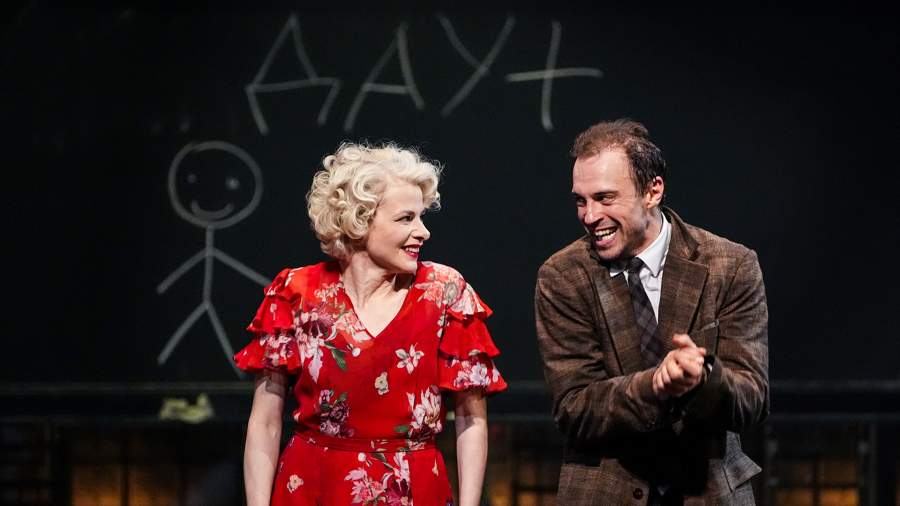
The premiere of "Landau's Sun" took place at the Vakhtangov Theater. Director Anatoly Shulev presented the great physicist as restless, suffering and misunderstood. The authors of the play consider the reason to be a mental illness, which the scientist has suffered from since childhood. However, this is a reflection not only on Landau, but about the twentieth century, about history, wars, discoveries and the paths that humanity chose. Izvestia visited the premiere and shares its first impressions.
The dhow is four hours long
Creating a play about a scientist in such a way as to captivate the viewer with scientific research and immerse them in the world of science is a very difficult task. Anatoly Shulyev, the chief director of the Vakhtangov Theater, tried to solve it. He chose the difficult fate of the outstanding Soviet physicist, Nobel laureate Lev Davidovich Landau, as the field for the experiment. Dau is what the genius asked himself to be called.
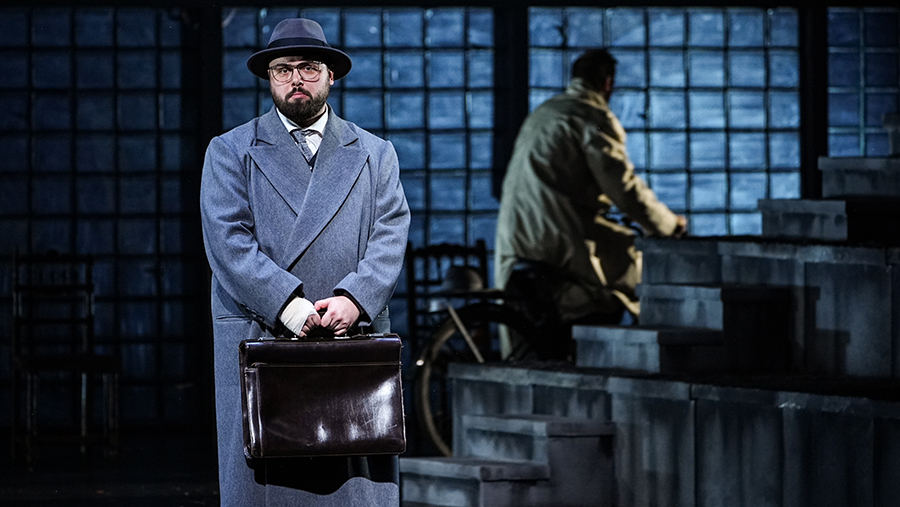
On April 14, the day of the 100th anniversary of quantum mechanics, one of the most advanced, perfect and wonderful scientific theories, at the same time one of the most unusual in the history of mankind, the performance "The Landau Sun" was presented on the stage of the Vakhtangov Theater. This production opened the Cherry Forest Art Festival. A red carpet was laid out for the guests in front of the theater entrance. Flowers appeared prematurely on cherry trees on the Arbat.
The last time the performances were dedicated to the pundits was at the Maly Theater. Based on the play by the Swiss playwright Friedrich Durrenmatt, The Physicists were staged there. But the scientists there aren't really scientists, because that play is more of a crime novel about psychiatric clinic patients who just pretend to be Einstein and Newton.
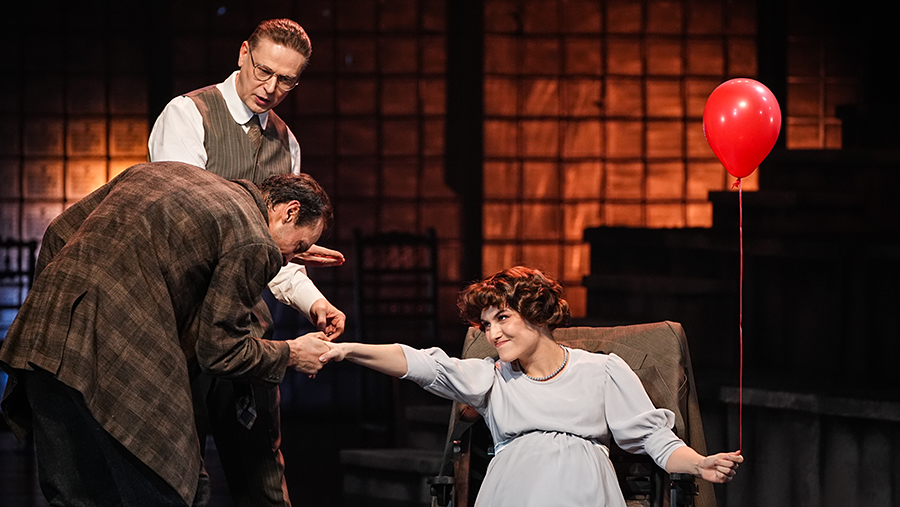
Mental suffering is also characteristic of the hero of the play by Anatoly Shulev. Lev Landau's fate reflected the life of the country and the world in the first half of the 20th century. There are wars, scientific discoveries, the formation of a school of teaching, and, of course, great and famous contemporaries — Peter Kapitsa, Niels Bohr. The director characterizes the performance as "flashes of memory." The audience moves through time with the hero, learning the significant events of his life.
— The biggest mystery is our consciousness, — Anatoly Shulyev is sure. — Where does it come from if the world is just vibrations of quantum fields? Maybe it is the beginning of everything? And is our life God's imagination? There's nothing more exciting than looking into another person's head. Especially someone as interesting as Lev Landau. To see how seemingly incongruous things come together in it.
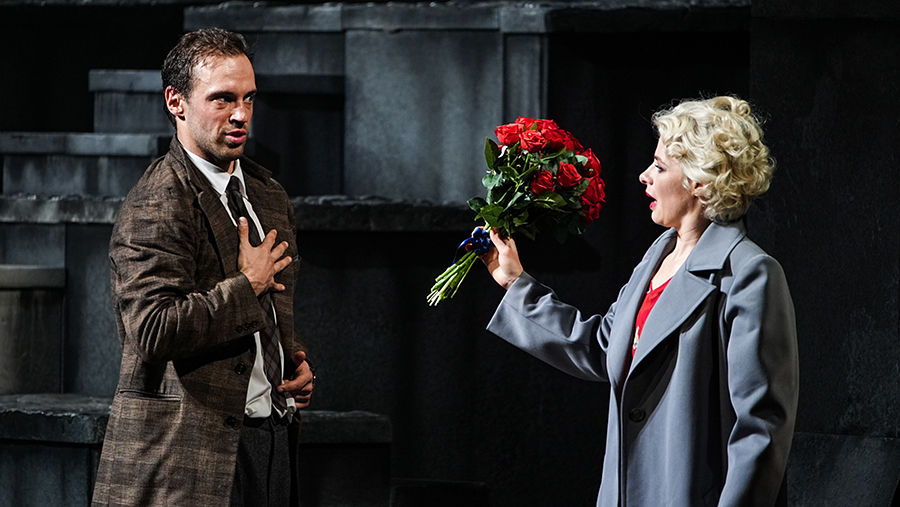
They worked together on the stage version of the Nobel laureate's biography during rehearsals. The play was born in the analysis of documents, memoirs, letters, speeches by Lev Landau and his contemporaries. That's how the four-hour production appeared. Among those who influenced the directors in the work on the play was the popularizer of science, physicist Alexei Semikhatov. He gives lectures that people go to as an action movie. An emotional, expressive scientist turns performances into a show. So Anatoly Shulev's team tried to be fascinating for their audience.
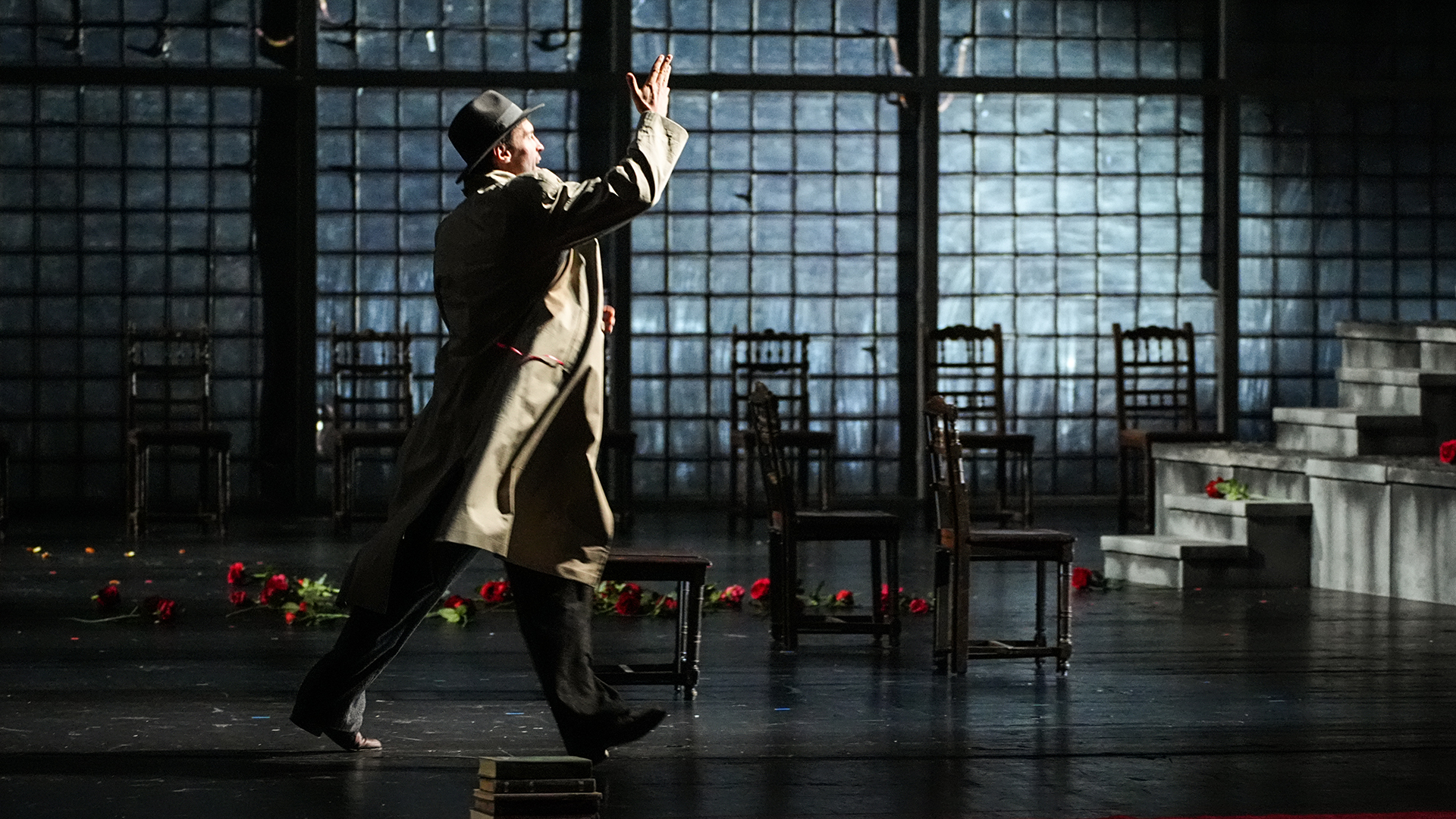
The task was difficult: for today's viewers, Landau's name is associated not so much with quantum physics as with Ilya Khrzhanovsky's scandalous megalomaniac project (in 2024, the Russian Ministry of Justice recognized him as a foreign agent) "Dau". The experimental action was filmed for ten years and turned into 14 films of different lengths, of which six received a rental certificate in Russia, but none were widely distributed. However, many of them were available online, it was widely discussed, especially since many celebrities took part in the project, and Landau himself was played by Theodor Currentzis. In the six years since the premiere, this project has not been forgotten, and nothing significant about Russian physics has been created since then.
How to watch "The Landau Sun"
The performance begins with lively music. Eduard Khil sings: "What is happiness? Who will answer?" And a cheerful pioneer voice from the speakers introduces: "Today we have a Soviet theoretical physicist, founder of a scientific school, academician of the USSR Academy of Sciences, Hero of Socialist Labor Lev Davidovich Landau!" To loud applause, a male figure appears from a cloud of smoke in the foreground. He's Landau. Cheerful and smiling, he came to a meeting with young people who are interested in what his mysterious and amazing quantum mechanics is.
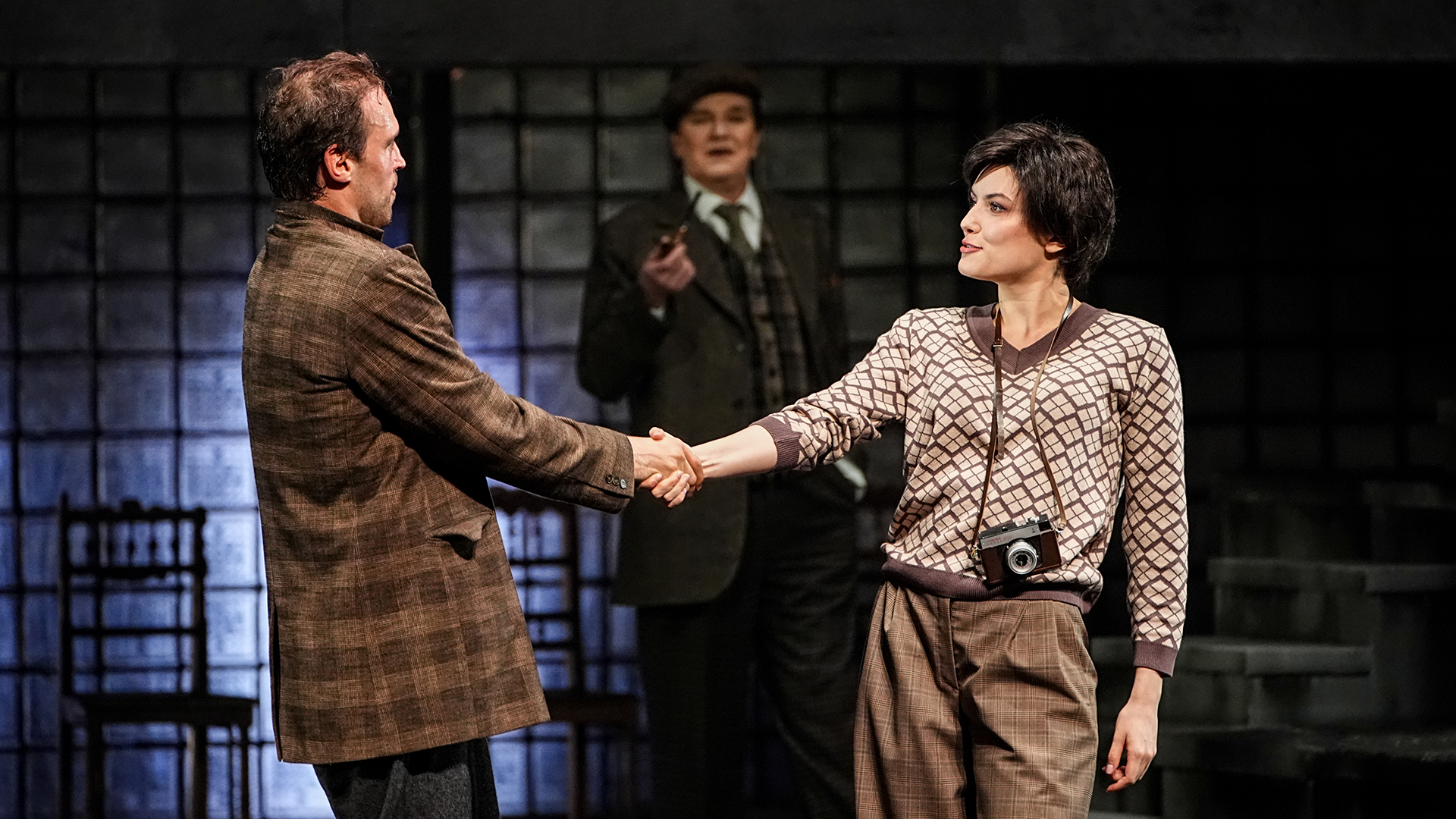
Pavel Popov plays the main role. Theater-goers fell in love with him after the grandiose role of Pierre Bezukhov in the play "War and Peace" by Rimas Tuminas. And moviegoers remember his roles in "Actresses", "13 clinical", "Golden Day".
Pavel Popov studied his hero in detail: he studied his memoirs, read memoirs, scientific papers, and even found a rare documentary recording of Lev Davidovich during a lecture. She became a reference point for creating an external image. And in order to convey the hot, impudent, arrogant, quarrelsome character of Lev Davidovich, he even came up with a pose that his hero periodically assumes. Looking over the heads, one hand raised, the other tucked into the belt. Pavel Popov and Lev Landau have no portrait similarities, but the actor managed to create the image of a great physicist and character. Uncomfortable, straightforward, uncompromising, with a heightened sense of injustice — this is how Pavel Popov saw the genius. "I'm like a good wine, only getting better over the years," the scientist says of himself. Physics was the meaning of life for Landau. He tried to attract her with the help of a textbook that he wrote with his friend Evgeny Lifshits (Denis Samoilov). He said that he couldn't stand idiots in science, and his goal was to rid it of those who had a vacuum in their heads.

Landau believed that if a person is talented, he will always break through. Because talents don't wait. They come by themselves, sit down without asking, and ask awkward questions in indignant voices. So was Landau himself. He considers Nobel laureates Niels Bohr (Oleg Makarov) and Peter Kapitsa (Igor Kartashev) to be his equals. Great scientists could enter into an argument with a physicist, they could forgive his incontinence and sometimes rudeness. And Landau's well-known theory became the leitmotif of the play. The scientist derived his formula for happiness, and it had only three components — friendship, love, and communication.
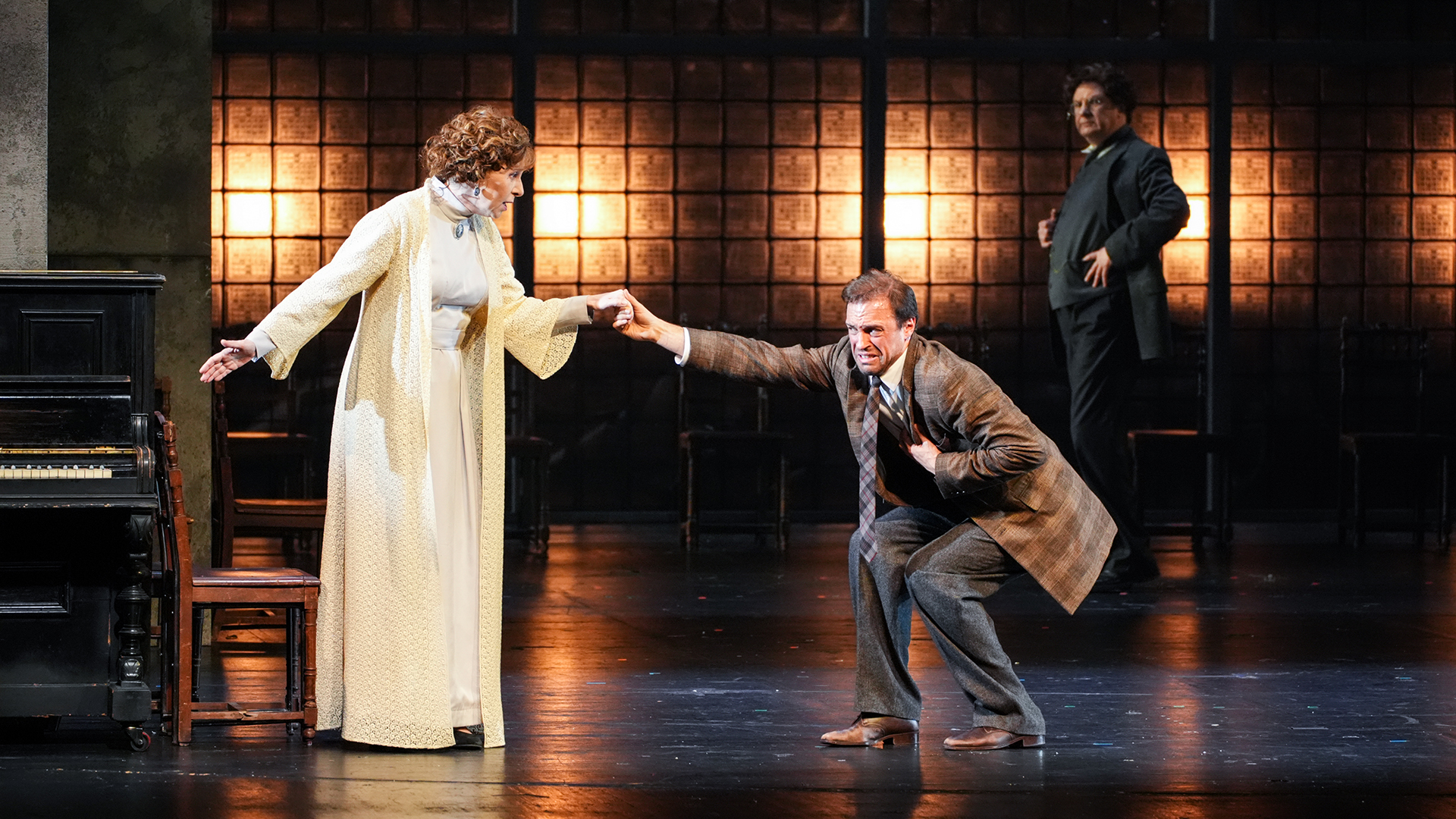
Production designer Maxim Obrezkov preferred the laconic design of the stage space. He transferred the audience to the environment of the Research Institute. Gray walls, columns, a staircase leading up to the auditorium, a wall of glass blocks descending from above and separating the world of scientists from the auditorium. And the piano as a reminder of the main character's living space. Little Leva hides under him when father David Lvovich (Alexander Ryshchenkov), the director of the institute, forces him to study music, insisting that it will be useful in life. But the boy is not interested in anything except numbers. He is ready to add, multiply, divide them, drawing with a branch in the sand. The father calls the strange child a jerk, which causes his son to have suicidal thoughts. Hence the dislike for oneself and even for one's own surname. Leo wants to be called simply Dau. He even gave it a "base": they say, l'ane means "donkey" in French. So the Landau surname means "donkey Dau".
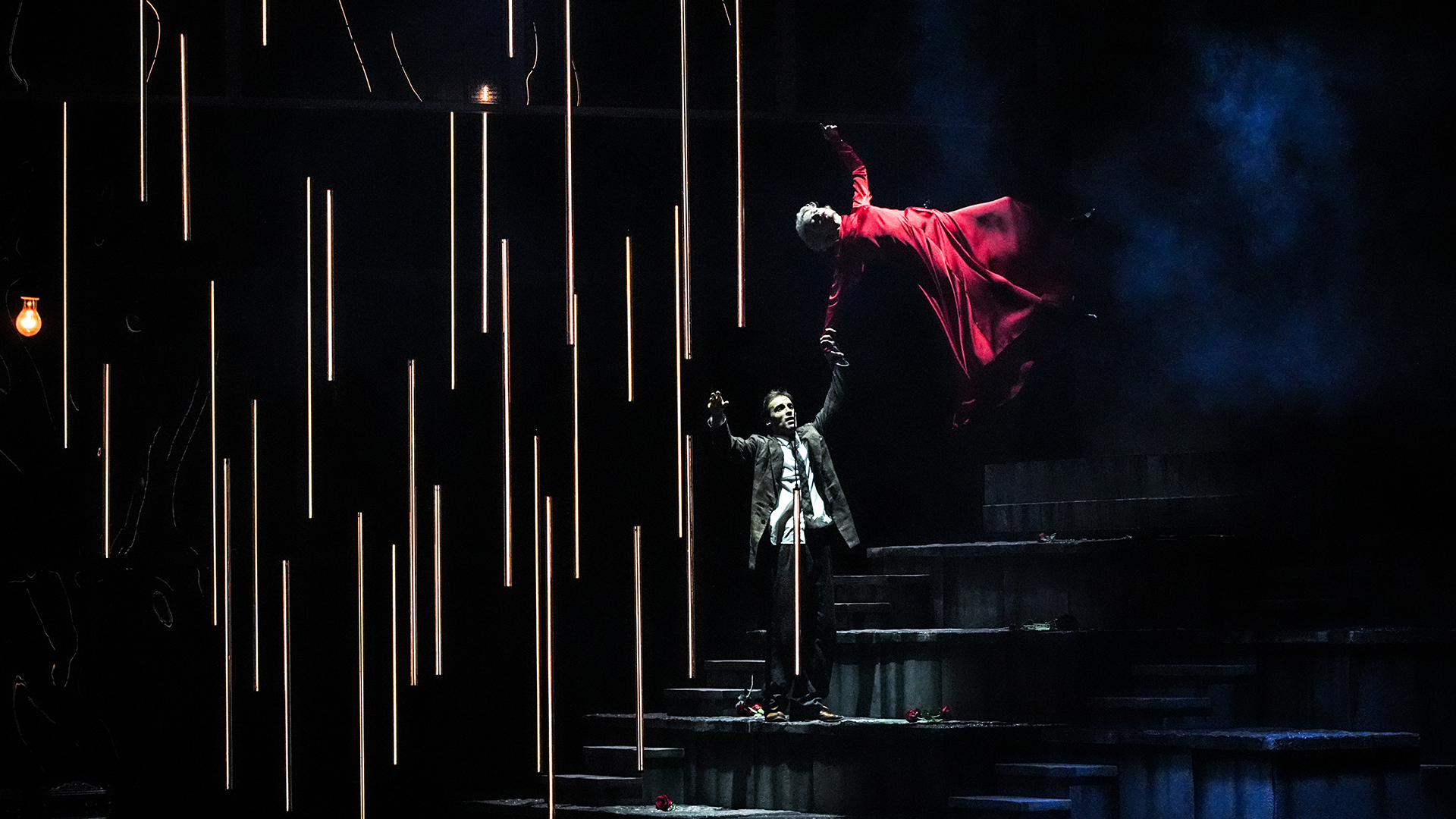
When his peers had already started families, Landau admits that, having lived to the age of 27, he had never kissed. But he doesn't reject getting to know girls. Moreover, it divides them into classes — from the first to the fourth. Once he met Cora (Yana Sobolevskaya), Landau remembered his trip to the Hermitage, where he saw the image of Venus. This goddess fascinated him so much that he went to admire her. But Cora was more beautiful than Venus. With her appearance, other passions began in Landau's life. However, it's better to see it than to read it in an article.
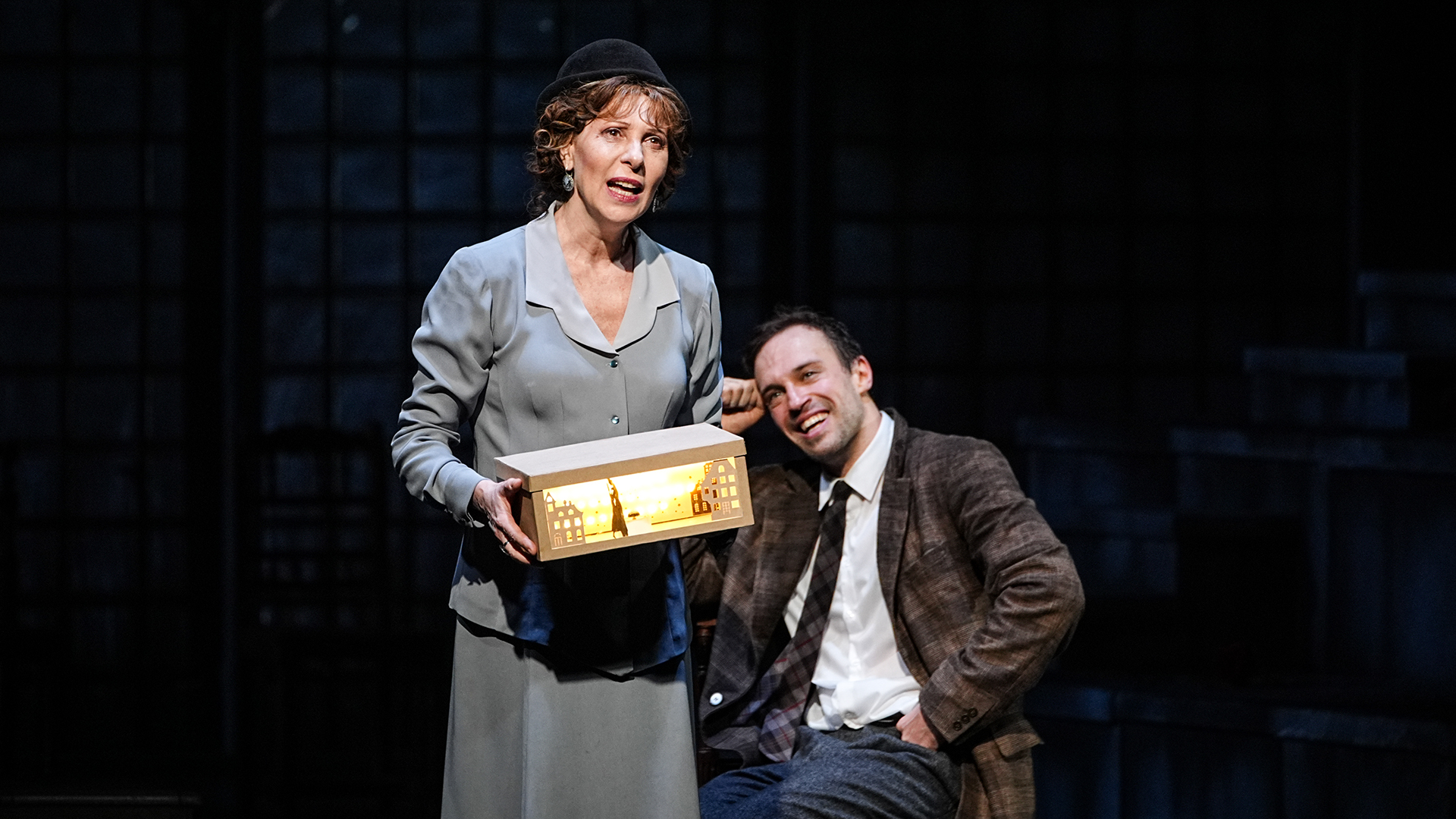
"The Landau Sun" is worth watching in order not to miss something important in your own life. The story of a physicist will help some to look at their children differently, not to miss the beginnings of talent. Others will want to get to know the legacy of the Soviet scientist better. And someone will just cry, laugh and admire the masterly work of the directors and actors.
Переведено сервисом «Яндекс Переводчик»
